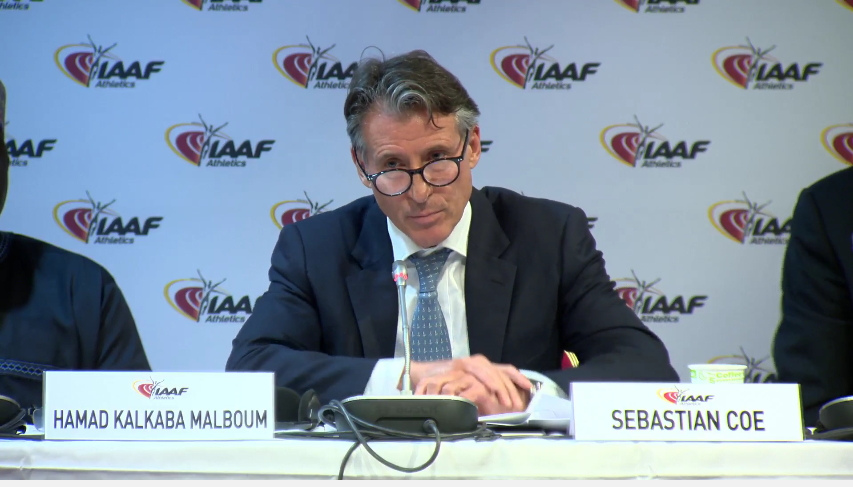Seb Coe defends IAAF’s position in Semenya case in CNN interview
Coe defended the IAAF testosterone rule as being the best solution to the issue of DSD athletes competing at certain distances, and asserted it was not about Semenya

IAAF president Sebastian Coe gave an interview to CNN today in which he was questioned by reporter Amanda Davies on the subject of Caster Semenya, who has been barred from competing in the 800m at the upcoming World Championships due to her refusal to accept the terms under which athletes with DSD may compete at that distance. Semenya lost her appeal of the IAAF testosterone rule with the Court of Arbitration for Sport earlier this year and appealed it to the Federal Supreme Court of Switzerland, which also decided against her.
RELATED: Caster Semenya will not compete at World Championships
“… at this point, my responsibility was to protect two classifications,” Coe says, referring to the male and female classifications in athletics, “and that’s what we feel we’ve done.”
“I don't see this as a personal issue”
IAAF President Seb Coe says he hasn’t spoken to Caster Semenya directly since she was barred from defending her world 800-meter title in Doha.https://t.co/KPR5gnGe50 pic.twitter.com/neubpXTPoe
— CNN Sports (@cnnsport) September 18, 2019
Semenya is the South African athlete with differences of sexual development (DSD) who won both the 2016 Olympic gold medal and the 2017 World Championships in the 800m. She is presumed to have testosterone levels that are higher than are typical for female athletes. The IAAF has implemented, at various times, rules limiting testosterone levels in female athletes, and most recently has required them to lower their T to not more than 5 nmol/litre through the use of testosterone-lowering drugs (i.e. the contraceptive pill). Semenya and others have resisted. While many agree that the rule is necessary to protect the integrity of female sport, some, including Canada’s Bruce Kidd and the Canadian Centre for Ethics in Sport have criticized the IAAF, describing the rule as arbitrary, unsupported by science, discriminatory and unethical.
https://www.instagram.com/p/B2fB7jBgPtx/
RELATED: Semenya wins 31st straight 800m at Pre Classic
In the interview, Coe is challenged on whether he has spoken to Semenya personally and whether he feels any empathy or sympathy for a fellow athlete who is being prevented from competing despite never having run afoul of any doping laws. His response was that he had not spoken to her, because the rule is not designed to single out individuals, but to govern a minority of individuals who fall under the DSD category and who race distances between 400m and the mile.
At least two other athletes who specialize in the 800m are believed to be affected by the testosterone rule.
Semenya appeared at several meets this season while her case was being appealed. Since the ruling prohibiting her from racing at Doha, she has indicated an interest in soccer, signing a contract with South Africa’s Janine van Wyk Football Club (JVW FC).


